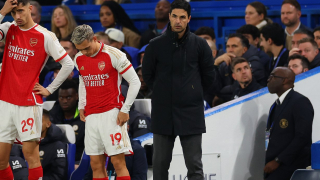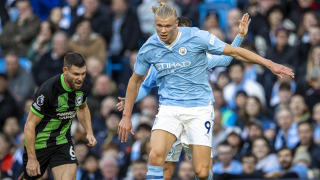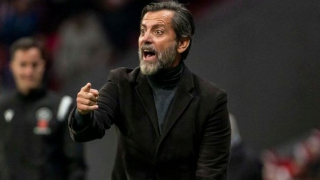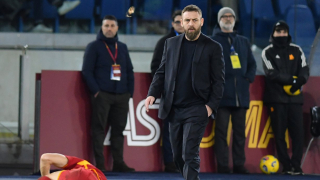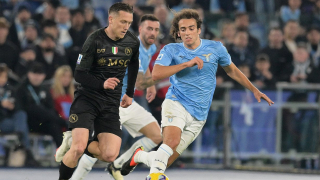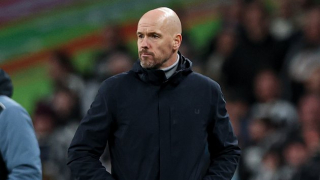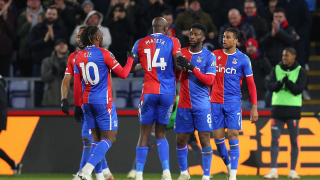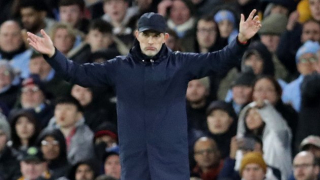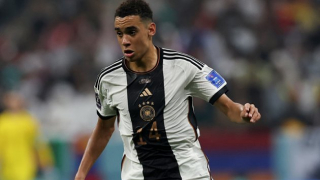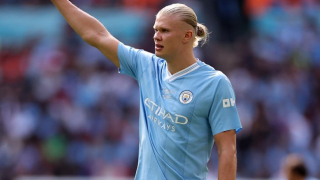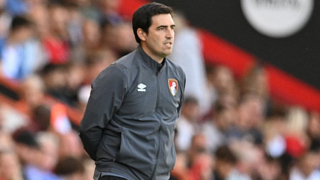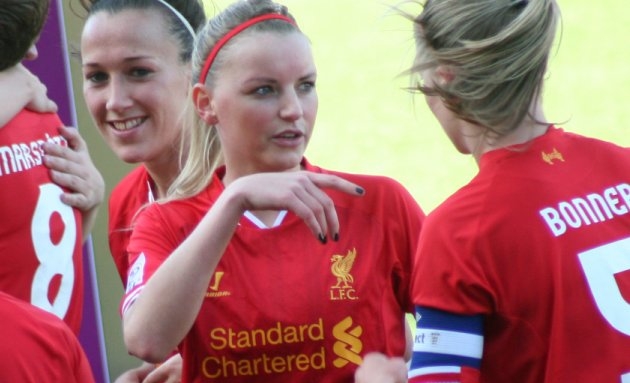This week, we have a final review on the wonderful four weeks of the 2023 FIFA Women's World Cup from Australia and New Zealand, including thoughts from two Haitian internationals who have returned to college in the U.S.—a number of teams used current American-based collegians (21 in total)—and we will be following their progress throughout the 2023 college season.
Of course, we must touch on the incredibly nauseous situation in Spain with their Federation President Luis Rubiales excusing his kiss on the lips of Jenni Hermoso after Spain won the Women's World Cup, with the 23 WWC winners and other national team pool members refusing to play any more games until he has left. The Spanish Federation has also no coaching staff—as 11 quit in support of the players—leaving the President's friend Jorge Vilda, who is loathed by a number of players. Spain and FIFA have an opportunity to gut their federation of this attitude towards women. The longer it drags on, the more it distracts from the women's play on the field. We also look at some national team coaching changes that have taken place with Brazil, Ireland and the Philippines.
WWC final thoughts
Some Coaching news, interviews with Haitian and New Zealand internationals who are back in college and the Turmoil with Spain's Football Federation and New Zealand's rationale for staying together for a few days after they were eliminated.
We present some final reflections on a tremendous—yet exhausting—four weeks for the 2023 WWC Finals, that undoubtedly will spur more growth in the game around the world. We also caught up with two Women's World Cup players from Haiti, who returned to their U.S. college teams for the fall season, as well as one from New Zealand who gave her perspective on why some of the Football Ferns sequestered in their hotel after their Group Stage elimination last month. We will periodically talk to some of the 21 college players who were on the 32 Final teams in AU/NZ and update readers on their progress this fall season.
The NCAA calculated that the 32 teams had 137 players who have (or currently) play with their colleges and universities, with Canada having more (22) than even the U.S. (20). Philippines had 18 Americans, with most having played in colleges, but England, Jamaica, Haiti and Nigeria also had key players who played collegiately in the States. We also have news on three coaching changes among the finals and reflect on the turmoil that Spain's WNT is undergoing, into the second week after their first WWC title win in tremendous style.
- Individual Player Bonus Payments—FIFA has now pledged to make sure that all players receive their tournament payments—ranging from $30,000 to $270,000 to each player based on their team's finish—to ensure that certain Football Associations don't use the money for other purposes. We would like to see the results of that process (preferably via an independent audit or player survey), given the amount of turmoil before the tournament over payment issues, notably with Haiti, Jamaica, Nigeria and South Africa. This is so important because these payments will be life changing for many players, particularly for those from developing nations. The payments were a great innovation this year by FIFA; they just have to make sure the national associations follow through with their delivery.
- Morocco was a leading light for the game in Africa and West Asia and is set for more success—Germany's shocking 1-1 tie on August 3 in Brisbane against a quite underperforming Korea in their first two matches and the resultant celebration in Perth, where Morocco had finished their 1-0 win over Colombia just minutes before, presented some magical scenes to watch. The Moroccan players and coaching staff were listening to the final minutes of the other match on the field, which, if Germany did not win, Morocco would advance to the Round of 16 in their first tournament. After their opening 6-0 defeat to Germany, Morocco's two wins were outstanding and, when the final whistle was blown in Brisbane, the celebrations was one of my most memorable memories of this tournament and is one of the iconic moment from any of the nine past WWCs (see: https://twitter.com/FOXSoccer/status/1687082000757518336?s=20). Though Morocco fell decidedly to France (4-0) in the Round of 16, the cordial scenes after that match between the teams—some players and coaches knew each other well—was a great symbol for the beautiful game and how the women's game is different than the men's game. Morocco was a standard barrier for the game in North Africa and West Asia before the tournament began and now are on a much higher plain and should inspire generations to come. The Moroccan federation seems quite committed to the women's game and their WNT program; the future is very bright for the nation's current and future women footballers.
- Brazil falls at the Group Stage but Marta's legacy is set—For Brazil, their group stage elimination was a true stunner and a terrible blow for Marta, in her sixth and final Women's World Cup. She was so classy with her statements after the game about the growth of the game in so many countries, including Jamaica, which drew with the Brazilians (0-0) in their final group game, a result which eliminated the South Americans from the tournament. As former Australian international Kate Gill said on FOX Sports television: "Favorites Brazil, Germany [and] U.S. going out early [and] so called minnows did incredibly well. A little bit of investment goes a long way in women's football." [Morocco and Jamaica were the poster teams for that statement]. Marta's sincere post-game interactions with Lorne Donaldson and Kadijha Shaw, the latter who had idolized her while growing up, showed that, when she eventually retires from the sport, she will be irreplaceable as a player and spokesperson for women's football. Marta has said that she will play in next summer's Olympic Games Finals in Paris, which Brazil qualified for last summer by winning the Copa America Femenina as the tournament determined both WWC and Olympic finalists from CONMEBOL. The group elimination did not reflect the strong positive impact that Pia Sundhage has had on the squad and if, as expected she moves on, she should have a number of bidders for her talents. With Spain's enduring turmoil (see below) she would be a nice fit if/when WWC winning head coach Jorge Vilda is ditched.
Note: On August 30, Pia Sundhage was fired from her position as the head coach of Brazil's WNT. Sundhage (63) took over in 2019 and still had one year left on her contract, through next summer's Paris Olympics. She compiled a record of 34 wins, 13 draws and 10 losses in 57 matches with Brazil.
- Philippines switches head coaches but stays with an Australian—Philippines 1-0 win in their second group round game against New Zealand effectively eliminated the Football Ferns from the knockout stage after they drew 0-0 with Switzerland in their final group game. New Zealand's opening match 1-0 win over Norway set the tone for a number of upsets by lower-rated teams in the FIFA women's national team ratings, but New Zealand advancing was always very unlikely to happen. Philippines head coach Alen Stajcic resigned shortly after the tournament and was quickly replaced by another Australian coach in Western United head coach Mark Torcaso —where Philippines captain and defender Jackie Sawicki played last season and which TribalFootball.com has confirmed with her that she will rejoin the side for 2023-24 (see: Exclusive: Jaclyn Sawicki on leading Western Utd and choosing Phlippines over Canada - Tribal Football). Stajcic meanwhile signed a three-year contract to coach the Perth Glory men's side in the A-League. There were some reports that the Philippines Football Association became dissatisfied with Stajcic, in part because he selected only one home-based player on his Finals roster when he had five last year at the Asian qualifiers, but Stajcic did a wonderful job taking the team through the Asian Qualifiers and into the Finals, and then defeated co-host New Zealand 1-0 in the group stage. Mark Torcaso will coach both the national team and A-League side Western United. A year ago, he had never coached at the national league level, let alone on the international stage. He took 2022-23 expansion side Western United of suburban Melbourne to the A-League Grand Final, falling to Sydney FC 4-0. He was named the league's Coach of the Year and Western finished one point behind Sydney in the regular season table, after leading for most of the season. Following his appointment to direct the Philippines, Torcaso said: "It is a dream come true." Torcaso (42), has also spent the past 22 years as the director of football at St Monica's College, and had been the Calder United head coach for six years—winning three Victoria state Grand Finals and four consecutive NIKE FC Cups. Andrew Durante, a former New Zealand international who played for over ten years at Wellington Phoenix in the A-League and is a development officer at Western United, was named as the assistant coach to the Philippines national team.
- FIFA tournament financials, attendance and television statistics—FIFA announced that they had broken even on the 2023 Women's World Cup tournament. Given that there were eight more teams in 2023 than in France 2019 with 12 more games, and coordinating across two countries and confederations—plus staging the bloated 10 team Play-in Tournament in New Zealand in February that gave Finals berths to Portugal, Haiti and Panama but drew very few fans—this was a very good thing. We wonder if financial considerations will drive the next WWC decision for the 2027 event, which most likely would place the U.S./Mexico bid in the driver's seat, as they would undoubtedly draw the largest crowds of the four bidders and drive ancillary revenues FIFA's way—leveraging the men's World Cup the year before in 2026 in both countries—plus Canada, ahead of Belgium/Germany/Netherlands' bid and put pad to Brazil's and South Africa's bids, which would be more challenged on the ticket sales and pricing aspects and overall revenue generation side. When they are released later this year/early in 2024, we will analyze each bid book, with particular focus on the financial assumptions, as we did ahead of the 2023 tournament's award, paying particular attention to how Brazil's bid has changed (if at all) since their bid effort for the 2023 finals.
Another positive of the 2023 finals is that Australian's government is investing AUD 200 million (U.S. $130 million) into grassroots women's sports for women's gear and facilities, including football. Prime Minister Anthony Albanese said that the Matildas changed women's sport forever: "The Matildas have given us a moment of national inspiration. This is about seizing that opportunity for the next generation, investing in community sporting facilities for women and girls around Australia." Sport Minister Anika Wells added that the $200 million commitment would ensure women had their own facilities and gear, rather than having to borrow from men's teams: "Too often women and girls are changing in men's bathrooms, wearing hand-me-down boys' uniforms, playing with men's equipment on poor fields that boys' teams wouldn't train on."
The government has also proposed reforms to the rules on how sporting events are televised to increase the access of women's sports on free television. The government will consider preventing streaming services and broadcasters from acquiring broadcast rights before a free-to-air channel is given the right to broadcast. This could also include events in the Paralympic Games, the AFL [Aussie Rules] Women's Premiership, the NRL [National Rugby League] Women's Premiership and the NRL Women's State of Origin series.
The Australia-New Zealand tournament attracted a new record of 1,975 million to the 64 games, with an average of 30,911, a sizeable increase from the 21,756 average gate in France four years ago. Canada 2015 drew the previous record of 1,353,506 people while France 2019 drew a total of 1,131,312 supporters (but both previous events had 24 teams and 52 games). The final between Spain and England at Stadium Australia in Sydney drew a sell-out crowd of 75,784. A FIFA spokesperson explained that: "FIFA's original [ticket] sales target for Australia and New Zealand was 1.300,000. This was later adjusted to 1,500,000, which was surpassed [to just shy of 2 million].
Despite some severe worries on the part of FIFA and many observers as to how New Zealand would fare as the tournament went on and the Football Ferns were eliminated—yet again at the Group Stage, though they did better on the field than in past tournaments with four points from the Group Stage—the nation drew 700,000 fans for 29 World Cup games, for an average of 24,138, a quite nice total. Before the World Cup, the record crowd for a football match in New Zealand was 37,034 for a men's World Cup play-off against Peru in Wellington in 2017. Auckland's Eden Park broke that record six times during the tournament: 42,137 for New Zealand's opening 1-0 victory over Norway, 41,107 for the Group E opener between the Americans and Vietnam (3-0), the 42,948 crowd for the American's final Group E match against Portugal (0-0) and the new sellout record of 43,217 for Spain's 5-1 blasting of Switzerland in the Round of 16, which was also the total for Sweden's 2-1 win over Japan in the Quarterfinals and Spain's 2-1 Semifinal last minute win over Sweden.
Australia's 35 matches averaged 56,429 fans per game. Stadium Australia in Sydney was used five times and hosted an aggregate 378,920 fans, with sell-out crowds at all five games, for an average of 75,784.
Regarding television ratings for the 2023 WWC, Australia's semifinal against England became the most-watched program—sports or otherwise—at 11.5 million viewers in the co-host nation's history since the current ratings system was established in 2001. The U.K. drew a peak audience of 7.3 million on BBC, while an additional 3.8 million people streamed the game on BBC platforms. The Spain-Sweden semifinal drew a peak of 3.7 million viewers on Spain's RTVE's La 1 channel. At one point, 53.6% of all Spanish TV viewers were tuned into the game.
The British audience for the final on BBC and ITV peaked at more than 14 million viewers. BBC's 12 million viewers was the second-most viewed event of 2023, behind only King Charles III's coronation in May. The record for a women's soccer broadcast is a peak of 17.4 million for the prime-time coverage of the England-Germany final at Euro 2022, which England won 2-1 in overtime. In Spain, the final drew an average of 5.6 million viewers with a share of 65.7 percent on national network La 1, topped only by the medal ceremonies (6,226,000 viewers) as the most watched program of the day on Spanish television. That share segment included 71.6 percent of all males watching television.
• NWSL teams were conspicuously absent among the starters of the semifinals—For the semifinal matches of England versus Australia and Spain versus Sweden, I thought that it was interesting that the NWSL—which always promotes itself as the best league in the world and certainly is the most competitive top to bottom—had no starters among the 44 players to start the two games. The WSL—grant it with England as one of the teams—had 21 members followed by Spain's Liga F with 12. Even the winter Australian A-League and Mexico's Liga MX Femenil (with Spain's WWC winner Jenni Hermoso at Pachuca) each had one but there was not a single player from the NWSL—they sent 57 players to the tournament across 15 teams (including 22 of 23 American WNT members and significant number of Canadians at nine)—but it is a sign that, outside of North America, the league is not yet competing for the top talent on the world stage, at least by this metric.
- Spain's federation-driven drama needs to end—We wish we didn't have to discuss this but the Luis Rubiales situation (the president of the Spanish FA) with his unwanted kiss of Jenni Hermoso in the celebrations after Spain won the WWC title on August 20 plus carrying Athenea del Castillo (22—Real Madrid) over his shoulder on the field and kissing the final's winning goal scorer Olga Carmona on the cheek, has overwhelmed the wonderful play of Spain capturing the title and encapsulated the complaints of sexist and misogynist behaviors that women footballers have had to endure for decades by administrators, coaches, and various team hangers on. When Hermoso complained about the unsolicited kiss and refused to go along with the Federation scripted media announcement that was prepared in Dubai on the flight home, that the kiss was consensual, Rubiales then went on a scorched earth strategy towards Hermoso and women in general, adding that he wanted to pay controversial and disliked head coach Jorge Vilda 500,000 Euros a year to stay on. All 11 national team coaches and staff resigned in support of the players, when all 23 WWC and 81 national team pool players stated in a letter that they will not play until Rubiales is dismissed—putting at immediate risk a high profile Nations League games versus Sweden this fall that doubles as Olympic Games Final Qualifiers.
Of the 11 technical staff who resigned in solidarity with the players, included were both senior assistant managers, under-19s and under-20s coaches and the senior team physio. They issued a statement that said: "We want to state the uncomfortableness we felt having been obligated to assist the general assembly [of the Royal Spanish Football Federation or RFEF] five days after the WWC win, in which Rubiales insisted on his innocence and blamed the players for the crisis. Many of the women from the staff were obligated to sit in the front row, boosting their [RFEF] images and trying to portray to society and the players, that they agreed with everything the president said."
Even head coach Jorge Vilda later had to back off a little, "I deeply regret that Spanish women's football's triumph has been harmed by the improper behaviour of our leader Luis Rubiales, which he himself has acknowledged."
Note: On September 5, Vilda was fired as head coach and sporting director, replaced on an interim basis by current assistant Montse Tomé (41), who played with the national team and has been on the full national team staff since 2018, and coached at the youth national team level.
FIFA provisionally suspended Rubiales for 90 days, but then Zambia coach Bruce Mwape has been investigated since last fall for sexual assault against players and coached at the WWC Finals, so we should be happy by this move rather than feeling skeptical. Rubiales is not collecting any of his $600,000-plus annual paycheck. UEFA has been strangely quiet during the week-plus of this clown show, and some worry that if Rubiales was forced to resign by ministers in the Spanish government, that it would be a breach of UEFA and FIFA rules forbidding government interference with an independent football federation that is a FIFA/UEFA member.
This situation has gone way beyond that concern and has become a crucial moment in the women's game, not just in Spain but globally. It has become akin to the "Me Too Movement" that we saw in the U.S. and other countries starting about a decade ago, that emerged to protest sexual harassment and abuse in the film industry and quickly expanded into a broad society movement. If Rubiales and Vilda, who has been a lightning rod for player criticism over the years, particularly for those from Barcelona, are allowed to stay in their jobs, clearly many players won't play again for the national team and the successes of 2022-2023 at the national team level (as reigning world champions at the U-17, U-20 and senior level) will quickly fall apart like a cheap paper towel when it gets wet. If the Royal Spanish Football Federation continues to support Rubiales and Vilda, then it will set the game back decades and send a message to other federations that it is open season to mistreat women with little or no consequences—particularly in some countries in Europe.
Spain's terrific first WWC win has been overshadowed by this mess, particularly in the U.S., which had very little general news coverage of the game on August 20 (it was shown live between 3-6 am local time on a Sunday morning) but now the American media outlets can't get enough of this turmoil. I find that a little duplicitous after our own NWSL scandal with massive and continual sexual and emotional abuse of players by coaches, which was covered in depth (including in Tribal Football.com) by a few outlets or at a surface level with little analysis by many main media outlets.
Rubiales showed no intention of apologizing, never mind resigning, when speaking after the Final to Spanish radio station Cope, saying: "We do not pay any attention to idiots and stupid people. It was a peck between two friends celebrating something. (The criticism) is really all just nonsense, (from) d@#%heads and dumbasses. These are just losers who did not know how to see the positive side. Viva Espana. We have the best players in the world and that is what we should be talking about. With one friend I celebrate with a kiss, with another giving her a hug, and whatever else."
He shouldn't describe Hermoso as a "friend"—she is an employee and works for him, so the kiss was a clear breach of business harassment rules and protocols. This football "leader and ambassador," also, after the final whistle, grabbed his crotch in celebration while in the VVIP section next to Spain's Queen Letizia and her 16-year-old daughter Sofia.
Rubiales has shown a history of bad decisions regarding women's football and is the anthises of social enlightenment. In 2019, he wanted to take the first edition of the relaunched Supercopa de España Femenina or the Spanish Women's Super Cup—which previously had been played as a two team series from 1997 to 2000 between league and cup champions, but now includes the winners and runners-up of the Copa de la Reina and the remaining highest ranked teams from the Primera División that had not already qualified through the cup final, or the equivalent of the Community Shield in England but with double the sides—to Saudia Arabia but faced criticism at home, including from government officials, due to human rights issues.
Rubiales response was to refer to it as the: 'Equality Supercopa' and the 'Supercopa for Women." At this year's Supercopa in January—still held in Spain—instead of presenting medals to the winners Barcelona, he left them in a box by the touchline for the players to collect themselves, likely in protest at the number of Barcelona players who have been critical of Vilda and "his" federation over the past year.
When 15 players protested after the 2022 EUROS about coaching and other issues regarding federation support, Rubiales called them "extortioners" and "brats" and essentially replaced them with a "new national team." This drama needs to end—we talked a few weeks ago about the continuing stress in Ireland with Vera Pauw (see: The Week in Women's Football: World Cup Groups review; Marta class; Morocco inspire; Pauw must go - Tribal Football), who we touch on below. But this is another level and much more detrimental to the sport. FIFA, the Spanish government, UEFA—some organization needs to end Rubiales reign and clean house at the federation, naming an executive for the women's programs who is well respected, female and can be allowed to focus on the further development of their current three World champions teams (senior, U-20 and U-17). I think that former Spanish international Veronica Boquete would be an excellent choice (see more below) but the 36-year-old is still playing with Fiorentina, and in her second season with the club in 2022-23 scored 8 goals in 25 games. She was banished by the federation from the national team after leading a player effort to get the former national team coach fired.
There has been conflict between national team players and the federation and coaches for years; it didn't begin at the 2022 EUROS. Before Vidar was appointed by Rubiales after Spain's first WWC in 2015, the team had only two managers in 35 years, with Teodoro Nieto in charge from 1981 to mid-1988 and then Ignacio Quereda for 27 years from 1988 through 2015. After their group stage exit in Canada, the players released a joint statement after their disappointing group stage exit in Canada asking for Quereda to step down: "After finishing our participation in the World Cup, it is time to take stock and draw conclusions. Both individually and as a group, the 23 players have made self-criticism and we know that our performance could have been better. This generation has the talent and commitment to have gone much further… It is evident that the preparation for the World Cup has not been correct, the friendlies nonexistent, the acclimatization scant, the analysis of the rivals and the way to prepare for insufficient matches … and this has been the dynamic for a long time. We believe that a stage has ended and that we need a change… If trust is lost and you are not able to reach a group, it is difficult to achieve goals. There is still a long way to go and many doors to open. This is a great moment for our sport, with many challenges and dreams ahead and it is everyone's responsibility to set the path forward. See where we are going and how we do it."
A few days after the players' statement was released, Quereda resigned. WNT player at the time Veronica Boquette, who has played around the world and who we have interviewed exclusively on multiple occasions in the past, said: "This made people see what was happening for a long time. What we did was leave the federation with no choice because the media and social pressure was strong." Boquete paid the price as she was left off the 2017 Finals Team and never called into the side again, despite scoring 38 goals in 56 matches. She told the Daily Telegraph at the time: "I know my time with the national team is over, and I know it's not because of my football."
We do think that Rubiales will be gone soon permanently—following Vilda—but this chaos has to be ended quickly and radical changes made at the Federation to ensure that this never happens again, which will be another legacy of Spain's 2023 WWC Championship side.
- Vera Pauw Out in Ireland—As we were writing this column, the Football Association of Ireland or FAI, announced on August 30 that head coach Vera Pauw's contract was not being renewed. FAI chief executive Jonathan Hill thanked her: "for her hard work and commitment over the past four years and (we) wish her well for the future." He noted the World Cup qualification: "made history and inspired a nation…. The future is bright for women and girls' football. Our focus now is building upon the work done by Vera and the historic achievements of our women's team, which we see as a platform to support the next phase of the journey for the team, and more broadly the development of women and girls' football in this country."
I have followed the Republic of Ireland's national team for years and this was the right decision, even though there have been some cries of anguish by fans about the decision to not retain Pauw based mainly on her record and the team's historic first WWC qualification and tournament, with two narrow losses to Canada (2-1) and co-host Australia (1-0) and a scoreless tie with Round of 16 qualifiers Nigeria (0-0), it was all the drama off the field that was distracting and becoming too much of a burden for the FAI.
Last year, the NWSL's investigation into rampant player abuse in the league over the years brought out allegations that Pauw was verbally abusive and controlling during her one season coaching the Houston Dash in 2018; she has threatened legal action against the Dash and the NWSL and, of her own volution, turned it into the media topic when the Irish played in the U.S. in April, with her emotional and disjointed discussion of the situation, positioning herself as the victim. She has also been criticized for her seemingly unexplainable at times roster decisions, her spat with captain Katie McCabe during the Canada match—after McCabe made some in game substitution suggestions—and Pauw went on the "it's my town and I'm sheriff" rant. McCabe responded on social media wittingly and sarcastically with a zipped mouth emoji.
Pauw has made it well known—to the point of distraction—that she wanted to stay on as Irish head coach and sign a new contract when her current deal expired at the end of August. She and the FAI had been talking about an extension earlier this year but talks went dark this summer. There were also reports of player dissatisfaction in Australia beyond the Katie McCabe incident. Players complained about her heavily defensive style of play, roster selection and overall preparations in Australia. We wrote previously about the friendly against Colombia in Brisbane just before the tournament when she thought they played too physically (see: The Week in Women's Football: Review World Cup week I; chat with NZ star Rennie; Nigeria's 'blabbermouth'? - Tribal Football. Her comment that the players had "fear in their eyes" was seen as a huge insult to the players.
The FAI's head of women and girls' football, Eileen Gleeson, will lead the team on an interim basis for September's Nations League openers against Northern Ireland and Hungary and could be considered for a longer-term role. Gleeson won two local league titles as manager of Peamount United in 2010 and 2011 and Glasgow City won a Scottish league title in her second season in 2022-23, though she had left the side early to return to Ireland. Other initial names brought up for consideration for the job were Liverpool [and former Boston Breaker head coach] Matt Beard and Casey Stoney, the current manager of the San Diego Wave. Tom Elmes is also highly regarded and a member of the current coaching staff—he is also the current U-16 WNT coach and won locally at Wexford Youths.
Since taking the job in September of 2019, Pauw had a 15-5-14 (W-T-L) record in 34 games and a 9-4-6 record in 19 competitive games. This was definitely a situation when Pauw's drama and intensity overshadowed her very good record and work on the field; she will be remembered by fans for what she helped the team achieve, as well as their competitive showing in Australia. They were ultimately undone there in the group stage but their lack of scoring (one goal with three against in three games) was always their Achilles heel. It is time for a fresh perspective and less turmoil off the field but she should find another high profile position in the near future.
- Two Haiti WWC Players return to U.S. Colleges—Two of Haiti's WWC players were among the 21 who returned from the 2023 WWC to play for their college teams: Milan Pierre-Jerome of George Mason University in Northern Virginia (suburban Washington D.C.) and Ruthyn Mathurin, who joined Mississippi State University this year after playing of University of Louisiana-Lafayette. Pierre Jerome told TribalFootball.com: "We are excited about being at the World Cup and the potential to go for and strive for even greater things. We were able to hold our own this tournament and a lot of people saw that. We are continuing to work hard and make a name for Haiti." Pierre-Jerome did not appear in any of Haiti's three WWC matches.
Pierre-Jerome discussed what the feedback has been from government leaders and fans in Haiti since the tournament ended; she said that she has heard: "How proud everyone is of us and how proud they were of how strong we came out and played as a team [and telling us] 'Thank you for putting us out in the world. Thank you for representing the country in such a positive light.' There were a lot of thank you's." The last time she was in the country was 2019 for a camp. Her message for moving ahead is: "Continue supporting us—help us accomplish our goals," which she felt should include more games in Haiti.
Pierre-Jerone has two more years of college eligibility at George Mason and then wants to play professionally but is not sure where, though a number of her teammates play in France, but she could play in the NWSL with no visa issues as she was born in Southern Florida. This season, George Mason is struggling with six losses from six games, with three 3-0 defeats and three by a 4-0 scoreline.
Haiti and Mississippi State's Ruthyn Mathurin in action against Grand Canyon University in Phoenix on August 17, after playing in the 2023 Women's World Cup this summer. Mississippi State won 2-1. Photo credit: Arianna Grainey.
Ruthyn Mathurin, who played 143 minutes of a possible 270 minutes for Haiti at the Women's World Cup, including starting and playing 81 minutes against China in their game two 1-0 defeat, said: "It was a pleasure for Haiti, for us and our family. It helped me develop skills and meet other big players, flying home through Dubai, Paris and Miami." Mississippi State is off to a 4-1-1 (W-D-L) start to the season. Mathurin has started all six games and has one assist from her defensive position.
Haiti and Mississippi State's Ruthyn Mathurin was part of the side that defeated Grand Canyon University in Phoenix on August 17 and tied 2023 NCAA playoff side Arizona State University (0-0) on August 20. Photo credit: Arianna Grainey.
- U.S. WNT Head Coach Update—Besides OL Reign head coach Laura Harvey, Jamaican WNT coach Lorne Donaldson, Nigerian head coach Randy Waldrum—the first two are naturalized Americans—another name has emerged to replace Vlatko Andonovski as U.S. women's national team head coach in current in Washington Spirit head coach Mark Parsons, a native of England, who coached the Dutch national team at last summer's EURO. The reigning champions underperformed and went out in the Quarterfinals of the 16 team tournament and Parsons was dismissed, replaced by Dutch coach Andries Jonkers, who took Sweden to the quarterfinals and narrowly lost in their bid for the last four, despite missing potent forward Viv Meidema of Arsenal due to a long-term injury. Some U.S. national team players want a coach with experience at the senior national team level, but his reign in the Netherlands was controversial and he was criticized by some of the players for his of coaching and decisions—plus the other three candidates above all have that, albeit Harvey at the U-20 and U-23 levels. Parsons certainly knows the NWSL and has been quite successful in Portland in the past and this season turned Washington around, currently sitting in sixth place and the last playoff spot on 26 points (6-8-4 W-D-L) but only four points behind first place San Diego Wave (9-3-6), after finishing in eleventh place out of twelve teams in 2022 with only 19 points. Parsons could further complicate the national team coach hunt and I'm not sure Spirit ownership would want to see him leave after bringing him back from Europe for this season, but we will keep the readers informed during the process (see more on the coaching search in: The Week in Women's Football: Spain will dominate for a decade; Harvey for USA job; WPSL DIII teams - Tribal Football).
- New Zealand international forward Gabi Rennie talks about her team's crucial WWC loss to Philippines and why some players and coaches sequestered in their team hotel after being eliminated from the tournament—TribalFootball.com had asked New Zealand international and Arizona State University senior Gabi Rennie before the tournament about their upcoming second match versus Philippines, who they defeated in September of 2021 in Southern California. Philippines turned the tables on the Football Ferns with their 1-0 win in that second game, which ultimately cost the latter a spot in the Round of 16. Rennie explained: "They recruited a number of new players for the WWC [which we had prefaced in our original discussion with her] and that added different elements for the team. They also prepared a lot for the game against us where we were focusing a lot more on the first game [against Norway, a 1-0 win]. It was definitely a very frustrating game. They were happy to park the bus and we couldn't finish." (See the original discussion in: The Week in Women's Football: Review World Cup week I; chat with NZ star Rennie; Nigeria's 'blabbermouth'? - Tribal Football).
We then asked Gabi Rennie why some team members and coaches decided to stay in their hotel for a few days after their side were eliminated following their last group match against Switzerland, when the team's target was always to advance to the Round of 16, rather than dispersing back home or to their club sides as many teams did. Some reports were critical of the practice, feeling that the team was 'hiding out,' even though fan support was high and they had achieved a record four points in the group stage, and started the tournament off with a bang with their 1-0 win over Norway, which was completed deserved on merit.
Jitka Klimkova told the New Zealand Herald: "I was not ready to go home, so we stayed there [team hotel], just recovering, a lot of the players and staff. We were walking with our New Zealand football gear, we didn't have any other clothes, and people just loved us. Not just at the stadium, but in the city, everywhere. I was going grocery shopping and people were stopping me and they are saying, 'Oh my gosh, guys, you've done so well, you guys are awesome' and I was like 'Wow, thank you.' We were so close and our performance was actually still inspiring." Rennie explained the benefits of what they did:
"Being that the World Cup is a 2-3 year preparation process and we were in camp [for] about three months before [the tournament's start on July 20] and it was a short, quick ending after the game against Switzerland. So, a few of us decided to stay and spend some more time together as a team and kind of digest the emotional ups and downs of what just happened in a safe space and I think that helped. No one really understands except those who went through what we did and it was good to reflect and help us move on from it."
That's good that the team had the time to do that break for their mental health and that might be a best practice for teams to consider for future tournaments.
Tim Grainey is a contributor to Tribal Football. His latest book Beyond Bend it Like Beckham is on the global game of women's football. Get your copy today.
Follow Tim on Twitter: @TimGrainey

